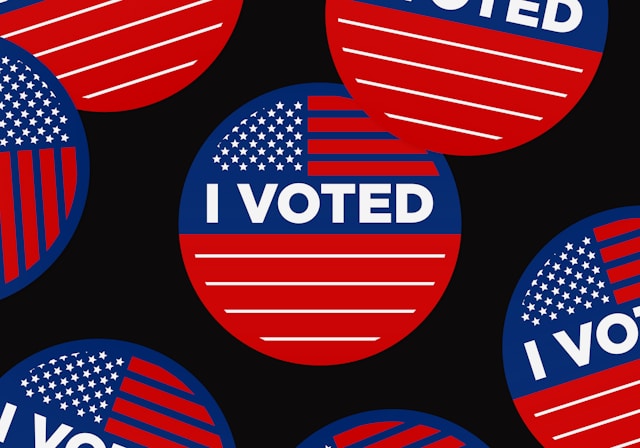How Will the U.S. Elections Impact Crypto Markets? Insiders Weigh In

The 2024 U.S. elections will have wide-ranging implications for the cryptocurrency markets, with outcomes that could shape the future of crypto regulation, investor sentiment, and adoption. The effects will be felt not only within the U.S. but across global markets, including decentralized finance (DeFi), cross-border remittances, and the best crypto sportsbooks popular among enthusiasts for offering more bonuses and rewards, anonymity and relative freedom of play compared to traditional establishments also feeling the brunt. With cryptocurrencies becoming more integrated into financial systems, any political shift in the U.S. will likely have ripple effects throughout these interconnected sectors.
One of the primary concerns among industry insiders is the potential shift in the regulatory landscape depending on who wins the presidency. Donald Trump, viewed by many as more crypto-friendly, has called for Bitcoin to be recognized as a strategic asset for the United States. His campaign pledges to promote the U.S. as a global crypto leader could accelerate the adoption and integration of digital currencies into traditional financial frameworks. Trump’s presence at major cryptocurrency events, like his keynote at the Bitcoin Conference in Nashville, reflects his support for policies that could ease regulatory restrictions on the industry.
On the other hand, if Kamala Harris or another candidate with a more cautious stance toward crypto, emerges victorious, the regulatory framework could become more restrictive. Harris has not shown as much enthusiasm for crypto and may support tighter regulations aimed at preventing money laundering, fraud, and other risks associated with digital assets. However, the growing bipartisan interest in cryptocurrencies in Congress could act as a counterbalance, ensuring that a supportive legislative framework for crypto continues to develop regardless of who occupies the White House. Insiders argue that bipartisan momentum for crypto-friendly policies could prevent an overly restrictive regulatory environment.
Nevertheless, some in the crypto industry downplay the significance of U.S. elections, asserting that the global nature of the crypto market will ultimately determine its trajectory. Charles Hoskinson, founder of Cardano, is among those who believe that international trends–such as Singapore’s forward-thinking crypto regulations or the European Union’s digital asset frameworks–will continue to drive adoption, regardless of U.S. political shifts. Countries outside the U.S. are already shaping the future of blockchain technology, and this global momentum is unlikely to be derailed by changes in U.S. politics.
For U.S. crypto investors, however, the election’s impact could be more immediate. Financial markets often experience volatility in the lead-up to elections due to uncertainty about potential policy shifts, and the crypto market is particularly susceptible to such fluctuations. If the election points to a more restrictive regulatory environment, investors may temporarily retreat from crypto assets, leading to short-term market dips. Conversely, if the election signals support for clear, favorable crypto regulations, such as further legitimizing Bitcoin ETFs or clarifying crypto tax laws, investor confidence could rise, driving the market growth.
Investor sentiment plays a crucial role in cryptocurrency markets, which are already known for their volatility. With the added uncertainty of the election, sentiment may swing sharply depending on political developments. Short-term traders could react swiftly to election-related news, causing price spikes or drops in major cryptocurrencies like Bitcoin and Ethereum. Even sectors beyond the core financial markets, such as DeFi and online sportsbooks, will be affected, as clearer regulations would encourage further adoption of cryptocurrencies in various industries, including fintech and gaming.
The increasing intersection between the crypto industry and U.S. politics is also notable. Over the past few election cycles, cryptocurrency political action committees (PACs) and industry-backed lobbying groups have contributed millions to the campaigns of pro-crypto candidates. These efforts aim to shape favorable legislation on issues such as crypto taxation, digital asset classification, and the regulatory treatment of DeFi platforms. Reports indicate that crypto-related PACs have already raised significant sums to influence the outcome of the 2024 election. The hope is that a more supportive regulatory environment could boost innovation in the U.S., ensuring it remains competitive with other crypto-friendly regions globally.
The outcome of the U.S. election could also have wider implications for the fintech and decentralized finance sectors. These industries are at the forefront of integrating blockchain and crypto technologies into mainstream financial services. The right regulatory framework would encourage further development of products that rely on cryptocurrencies, such as payment systems and remittance platforms. On the flip side, a harsher regulatory stance could stifle innovation, forcing these industries to operate within more stringent compliance constraints.
It is also important to recognize that the 2024 election could be a watershed moment for crypto, as younger voters–particularly millennials and Gen Z–are increasingly interested in digital assets. Given their enthusiasm for decentralized technologies, these generations are likely to support candidates with pro-crypto stances. Their influence could potentially sway the election toward candidates more open to crypto adoption, highlighting the growing importance of digital assets in the political conversation.
In conclusion, the 2024 U.S. election has a significant, albeit varied, impact on the cryptocurrency markets. While domestic regulatory changes will undoubtedly shape investor sentiment and market behavior, the global nature of the crypto industry means that international developments will also continue to play a critical role. Whether you are trading cryptocurrencies, involved in decentralized finance, or using crypto sportsbooks, staying informed about the potential policy shifts resulting from the election will be essential to navigating the post-election crypto landscape. Although U.S. politics will influence the future of crypto, the worldwide adoption of digital assets ensures that the industry’s evolution will continue, regardless of who wins the White House.
